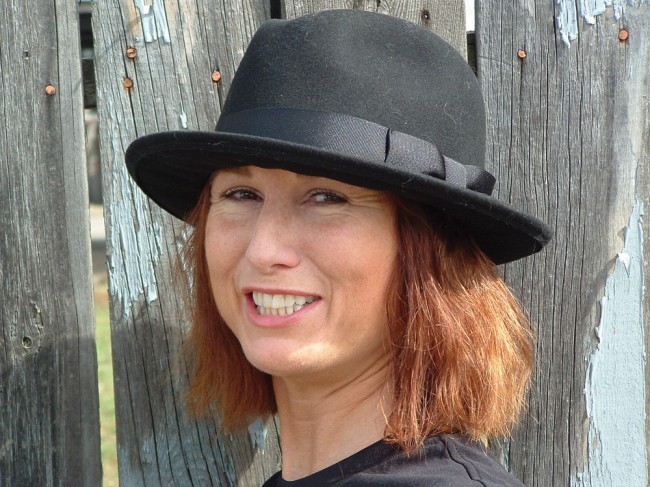
Portraits of northern academics #1: Dr. Si Transken
It is often difficult for someone at a post-secondary institution, working in a specific field, to communicate their work to a larger community. The field of study can be specialized and the opportunities to disseminate their findings or interests can be few and far between. Most academic writing ends up in journals and books that do not easily lend themselves to popular reading.
The professor I have chosen to profile in this column is one who has already done much to break down the barriers between the academy and the street. Dr. Si Transken’s work in art therapy, creative empowerment, and social justice activism/artivism takes her out of the ivory tower more than most at UNBC. Her work at AWAC, a homeless shelter for high-risk survival sex-trade workers and drug-addicted women, puts her in contact with the most vulnerable in our community. She also takes leadership roles at events like Take Back the Night and International Women’s Day. Si works with women who have faced challenges, giving them a voice through art and through poetry, to both tell their stories and to empower themselves in a context in which they usually feel they have none.
Si’s work is at the intersection of social justice, creative arts, and feminism/gender studies. Her central aim is to address inequalities and violence in our society that continues unabated by government policy and cultural norms. One of her tools in both classrooms, her writing, and in dealing with clients is “autoethnography.” This is a kind of self-reflection or personal writing that explores lived, tangible experience and then relates this autobiographical story to prevailing cultural, political, and social attitudes. How do we explain the lives of women in poverty, of aboriginal woman who are victims of violence, of generations of women with substance abuse issues, and of abused children? What are the ways that society creates and even supports these injustices?
Si has curated many shows and organized many events in which the art of her clients has been shown publicly. These shows both validate the women’s stories and images, and bridge a socio-economic gap to turn these invisible lives into real and present perspectives. The art and poetry that Transken produces, herself and collaboratively, may not sit well with a passive or closed-minded viewer; the pages and canvasses challenge contemporary Canadian society to see inequality, to see its own endemic violence, to rethink aesthetics and elitist art, and to begin to take care of its communities and its most vulnerable.
Si’s doctorate is in Equity Studies from the University of Toronto, and she taught for three years at Laurentian University before coming to UNBC in Prince George to teach in the Social Work Program. She is now an associate professor and well on her way to full professor, the highest standing in her field. Her courses include Women and Social Policy, Family Counselling, Autoethnography and Arts-Based Research, and Social Work with Victims of Abuse. She has had work published in books such as Feminist Utopias, Care and Consequence, Caring Communities, Auto/biography in Canada, and Equity and Justice. Her poetry has been published in Canadian Women’s Studies, Azure, Perspectives, The Capilano Review, and Unfurled: Northern BC Women Poets.
A good description of what Si does can be found on the UNBC website: “together with her clients she attempts to fully reclaim women’s hope, creativity, vision, and empowerment.” I join a chorus of voices of people who have been touched by Si’s energy, wisdom, and integrity to say, in creative solidarity, thank you for what you do.


